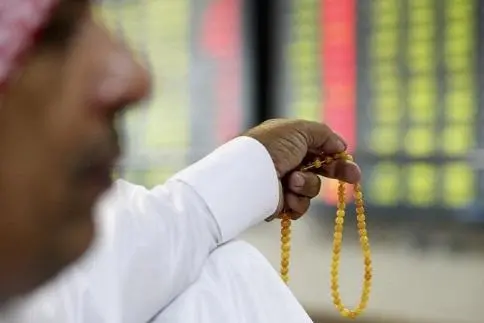PHOTO
The CEO of a Dubai-based Islamic insurance business has said the firm intends to take a greater share of a fragmented marketplace through doing more business with the major family-owned groups operating in the United Arab Emirates.
Rajesh Sethi, the chief executive of Noor Takaful, told Zawya in a telephone interview last week that he had "appealed to my board members that we need to get connected with group companies".
"We have not explored that area enough," Sethi said.
"We have been working with non-group companies all this while and I'd like to make sure that at least the group business, end-to-end, belongs to us."
Noor Takaful is 90 percent owned by Noor Investment Group and 10 percent by Noor Bank - both of which are majority-owned by Dubai's sovereign wealth fund, the Investment Corporation of Dubai.
The firm is one of around 60 conventional and Islamic insurance companies in what is a fragmented market in the United Arab Emirates, and employs 170 people through branches in Dubai, Abu Dhabi and Sharjah.
Speaking after an event marking the company's 10-year anniversary last week, Sethi said that he expected a "single-digit" increase in revenue growth in 2018, after the company achieved gross written premiums of 525 million dirhams ($143 million) in 2017. A subsequent press release stated that gross written premiums would reach 550 million dirhams this year.
Sethi told Zawya that the company earns around half of its premiums through a medical insurance arm with up to 200,000 customers, 30 percent through a life insurance business with 10,000 customers and the remaining 20 percent via a general takaful business that insures more than 50,000 buildings, 20,000 cars and 200 yachts.
"What I want to do is strategic wins. This is not about independently growing general, takaful, medical and life, this is about associating ourselves with the right client base and then servicing them end-to-end, which very few people are able to do, because our competition is either general takaful companies, or life companies, or medical companies - very few consolidated composites."
He aims to do this both through incentivising brokers (who are responsible for about 40 percent of its distribution) to offer accompanying products when making a sale, or by personalising and tailoring products through technology and social media to existing clients.
For instance, he says that if a person buys medical insurance for a new maid, the person buying it will also have a villa or apartment.
Car and driver
"If you buy a driver's medical insurance, surely there's a car?" he adds.
"We haven't leveraged up these opportunities. They sound obvious, but I'm not aware of anyone doing it as efficiently as they should. It goes back to that initial theme of when I have a customer, I want to do everything (for them)."
He argues that this makes sense for group companies, who don't particularly want to deal with different insurers holding different policy lines when an incident occurs.
"No accident or risk is purely general insurance, or purely medical. If you have an accident, people get hurt - that's medical. Equipment gets trashed - that's general. You want to be dealing with one firm that does everything," he argued.
Yet getting the opportunity to service entire group companies with so many competitors in the market may be difficult. A report on the takaful market published by insurance industry ratings company A.M. Best in May this year stated that there were more than 60 insurers in the UAE, and that the five biggest companies (all conventional insurers) commanded one-third of the market, in terms of written premiums.
It said that larger firms have good brand recognition and had been able to create strong franchises, while smaller firms had to compete more fiercely for business.
"Takaful operators generally fall into the latter group, where emphasis is placed on growth over profitability," the AM Best report states.
"This often leads to intense levels of competition, with takaful companies competing directly with conventional insurers. Given their relatively new status and position in these markets, takaful operators often lack sufficient size to achieve economies of scale," it said.
AM Best's report said takaful penetration had been 'disappointing' in the MENA region overall, and takaful operators generally performed worse in terms of returns offered to investors than conventional insurers.
However, Sethi said that the takaful sector was growing much faster than the conventional insurance market, and that one reason for the sector's disappointing performance was that reinsurance, or retakaful, capacity "was hard to get".
"But some very nice lines have been tapped over the last couple of years. So as margins improve, obviously that business becomes more attractive to grow into."
There has been more investment into Dubai-based Islamic insurance companies in recent weeks, with Goldilocks Investment Co – a fund managed by Abu Dhabi Financial Group – buying a 29.49 percent stake in Takaful Emarat and upping its stake in takaful provider Salama, taking the combined Goldilocks/ADFG share in the Dubai-based company to 29.92 percent.
(Reporting by Michael Fahy; Editing by Mily Chakrabarty)
(michael.fahy@refinitiv.com)
Our Standards: The Thomson Reuters Trust Principles
Disclaimer: This article is provided for informational purposes only. The content does not provide tax, legal or investment advice or opinion regarding the suitability, value or profitability of any particular security, portfolio or investment strategy. Read our full disclaimer policy here.
© ZAWYA 2018




















